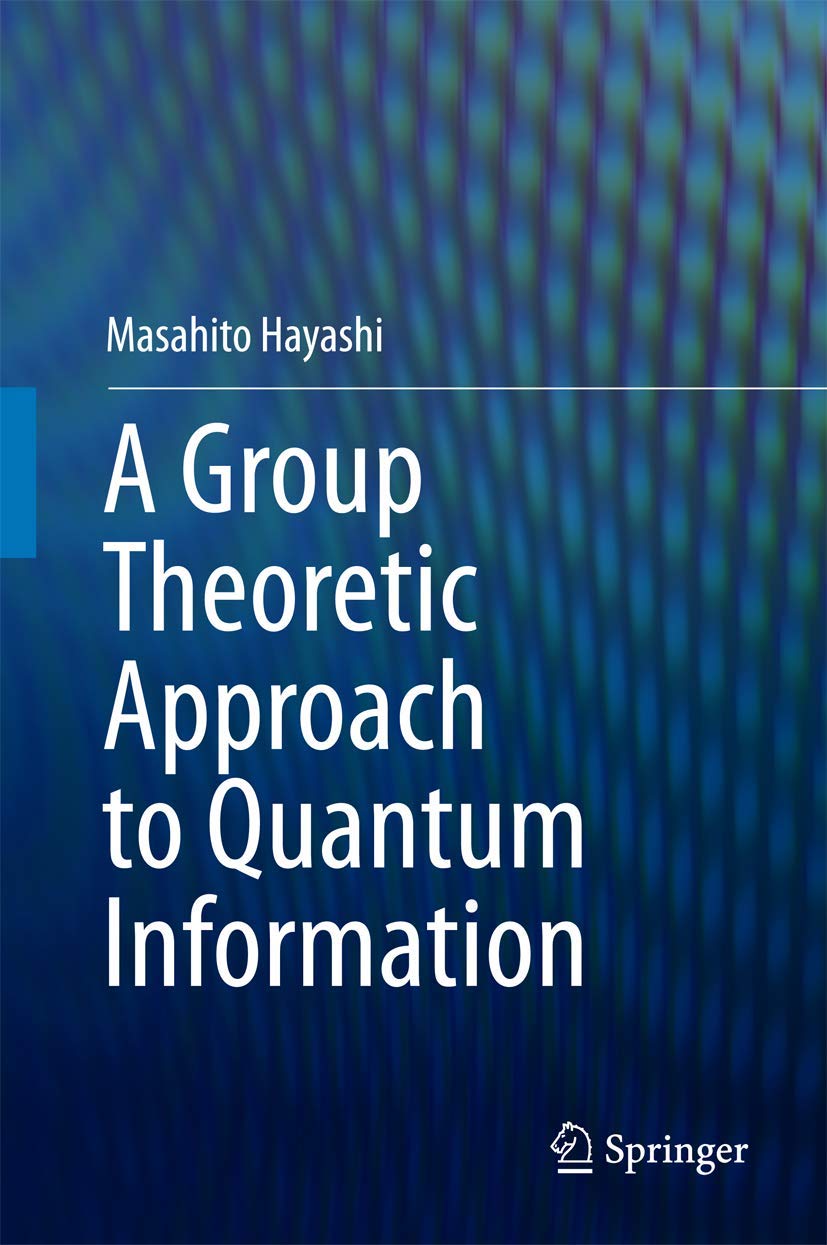A Group Theoretic Approach to Quantum Information
A Group Theoretic Approach to Quantum Information is backordered and will ship as soon as it is back in stock.
Couldn't load pickup availability
Genuine Products Guarantee
Genuine Products Guarantee
We guarantee 100% genuine products, and if proven otherwise, we will compensate you with 10 times the product's cost.
Delivery and Shipping
Delivery and Shipping
Products are generally ready for dispatch within 1 day and typically reach you in 3 to 5 days.
Book Details
-
Author: Masahito Hayashi
-
Brand: Springer
-
Edition: 1st ed. 2017
-
Binding: Hardcover
-
Number of Pages: 228
-
Release Date: 09-11-2016
-
ISBN: 9783319452395
-
Package Dimensions: 9.4 x 6.5 x 0.8 inches
About The Book
This unique book delves into quantum information from the perspective of group symmetry, a viewpoint that is typically overlooked in other quantum information textbooks. It systematically addresses how group symmetry can be applied to quantum information processing, simplifying many complex calculations in quantum entanglement and information processes.
Key features include:
-
Introduction to group symmetry and its role in quantum systems, offering a new framework for understanding quantum information processing.
-
In-depth treatment of quantum entanglement, with quantification methods simplified by group symmetry, making traditionally complex calculations more accessible.
-
Exploration of optimal quantum information processes like quantum state estimation, quantum state cloning, and quantum channel estimation, made simpler through group symmetry without requiring asymptotic assumptions.
-
A detailed section on quantum error correcting codes using the symmetric structure of Weyl-Heisenberg groups.
-
Focus on quantum universal information protocols, including a quantum version of Csiszar-Korner's universal coding theory.
This book is a must-have for researchers and graduate students interested in quantum information, offering a novel and systematic approach to understanding group symmetry in quantum theory.





